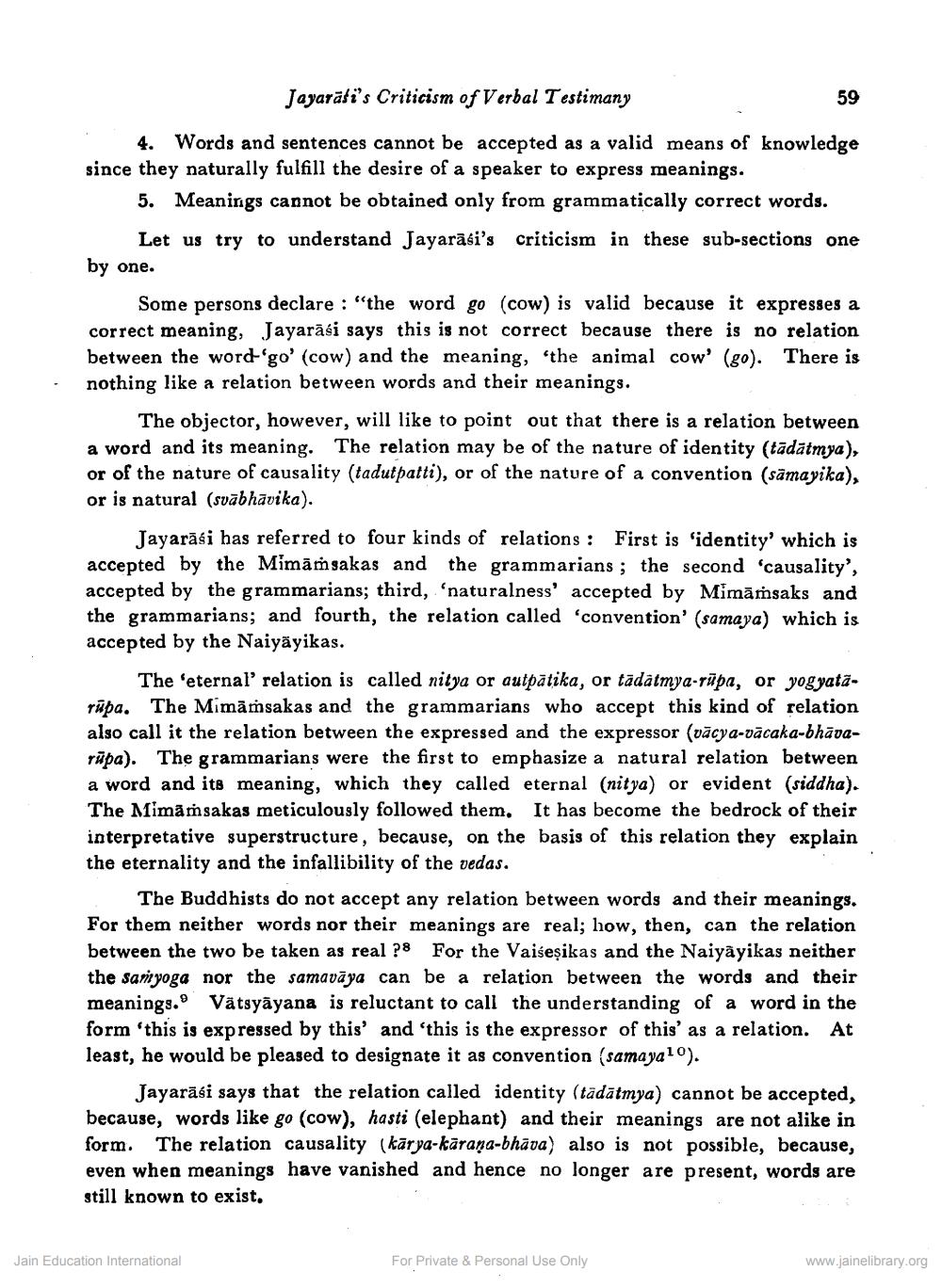________________
Jayarati's Criticism of Verbal Testimany
4. Words and sentences cannot be accepted as a valid means of knowledge since they naturally fulfill the desire of a speaker to express meanings.
5. Meanings cannot be obtained only from grammatically correct words. Let us try to understand Jayarasi's criticism in these sub-sections one by one.
Some persons declare: "the word go (cow) is valid because it expresses a correct meaning, Jayarasi says this is not correct because there is no relation between the word 'go' (cow) and the meaning, the animal cow' (go). There is nothing like a relation between words and their meanings.
59
The objector, however, will like to point out that there is a relation between a word and its meaning. The relation may be of the nature of identity (tädatmya), or of the nature of causality (tadulpatti), or of the nature of a convention (sāmayika), or is natural (svābhārika).
Jayarasi has referred to four kinds of relations: First is 'identity' which is accepted by the Mimämsakas and the grammarians; the second 'causality', accepted by the grammarians; third, 'naturalness' accepted by Mimämhsaks and the grammarians; and fourth, the relation called 'convention' (samaya) which is accepted by the Naiyayikas.
The 'eternal' relation is called nitya or autpätika, or tädätmya-rapa, or yogyataTupa. The Mimāmsakas and the grammarians who accept this kind of relation also call it the relation between the expressed and the expressor (bacya-vācaka-bhāvaTupa). The grammarians were the first to emphasize a natural relation between. a word and its meaning, which they called eternal (nitya) or evident (siddha). The Mimamsakas meticulously followed them. It has become the bedrock of their interpretative superstructure, because, on the basis of this relation they explain the eternality and the infallibility of the vedas.
The Buddhists do not accept any relation between words and their meanings. For them neither words nor their meanings are real; how, then, can the relation between the two be taken as real ?8 For the Vaiseṣikas and the Naiyayikas neither the saniyoga nor the samavaya can be a relation between the words and their meanings. Vatsyayana is reluctant to call the understanding of a word in the form 'this is expressed by this' and 'this is the expressor of this' as a relation. At least, he would be pleased to designate it as convention (samaya10).
Jayarasi says that the relation called identity (tädätmya) cannot be accepted, because, words like go (cow), hasti (elephant) and their meanings are not alike in form. The relation causality (kārya-kāraṇa-bhāva) also is not possible, because, even when meanings have vanished and hence no longer are present, words are still known to exist.
Jain Education International
For Private & Personal Use Only
www.jainelibrary.org




